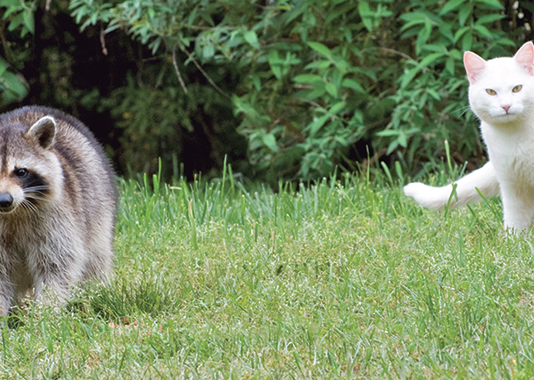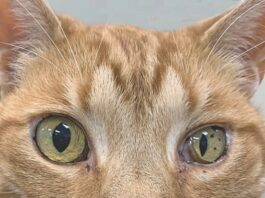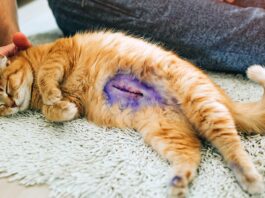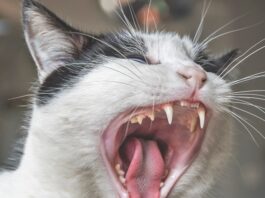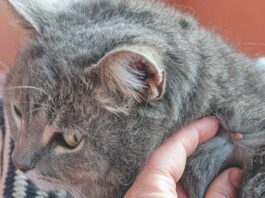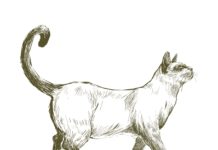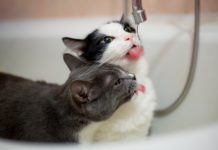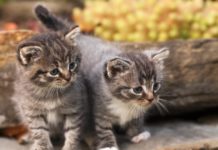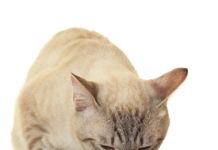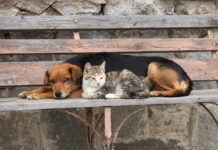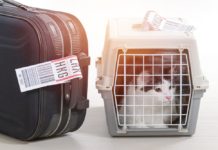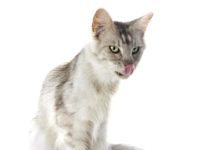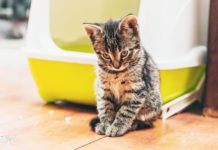Pleural Effusions Have Serious Causes
An article in the July 15, 2018, Journal of the American Veterinary Medicine Association looked at a French study on feline pleural effusion. Pleural effusion is a buildup of fluid in the pleural space, which is the space in your cats chest between the protective linings covering the lungs and the walls of the chest cavity itself. Normally, there is only a small amount of fluid in that area. Large amounts of fluid mean less room for the lungs to expand, which causes difficulty breathing and getting adequate oxygen to your cats body tissues.
Entice Your Cat to Drink More
A conundrum for many cat owners is getting their cat to drink more. While eating dry kibble can be nutritionally adequate (and some cats definitely prefer kibble to canned), most cats could benefit from drinking more. More fluid going in helps with hydration and can help to flush the kidneys and bladder with more urine production. A recent study reported in the American Journal of Veterinary Research in July 2018 looked at trying to entice cats to drink more using a nutrient-enriched water option.
Cat Food Ingredients Owners Want to Avoid
As reported in Pet Food News, a Nielsen survey listed ingredients owners want to avoid when choosing a food for their pet, although the rationale the owners used for making the choices is not readily clear.
Tilting Heads and Drunken Walks
Normally your cat is an amazing athlete. She can do flips and land right side up, even after a tumble from a tree or window, and can leap from floor to countertop in just one bound. But when vestibular problems strike, that same cat walks like the proverbial drunken sailor.
Plague Found in Idaho
KTVB in Boise, Idaho, reported in June that a cat tested positive for the plague. This occurred a month after a child tested positive for the plague, also in Idaho.
Cushings Disease Can Strike Cats
While Cushings disease, which is technically called hyperadrenocorticism, is more common in dogs than cats, feline members of your family can have this health problem.
New Cat: Safe, Civil Introductions
We have opened our home to an additional cat, and we would like to know how best to introduce the cat to our existing cat and dog. Can you give us some advice on how to make this transition safe and easy?
Five Tips for Travel with Your Cat
For cats who must travel with you, consider these safety thoughts
Cost of Pet Emergency
CNBC.com reports that nearly 70 percent of American households have a pet but most are unprepared financially for a veterinary emergency, which averages between $800 and $1,500, according to Petplan.
Subtle, Sneaky Digestive Issues
Your cat has a ravenous appetite but never gains weight and might even be losing weight. In addition, you may notice the litter box has more deposits than ever before-often soft and slimy with a worse odor than usual. Your cat may be suffering from a malabsorption/maldigestion disorder. Malabsorption means the cat cant absorb the nutrients. Maldigestion occurs when your cat is not producing the enzymes needed to digest her food. Digestion Gone Awry …
Managing the Mess
A beloved family cat who becomes incontinent can raise the household stress level immeasurably. After years of dutifully using the litter box, your cat seems to go wherever she is. The truth of the matter is that shes not happy about it either.
New Blood-Pressure Med
The U.S. Food and Drug Administration (FDA) has approved Boehringer Ingelheim Vetmedica Inc.s Semintra, the first FDA-approved drug to control systemic hypertension (high blood pressure) in cats. The drug has been available in Europe since 2013.

